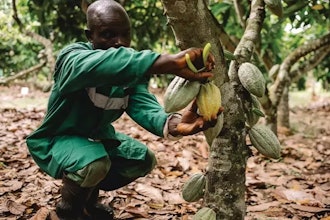WASHINGTON (AP) — A U.S. judge sided on Tuesday with environmental groups that challenged the planting of genetically-modified crops on National Wildlife Refuges in the South.
U.S. District Judge James E. Boasberg rejected the federal government's argument that the environmental groups' lawsuit was moot because the Fish and Wildlife Service had already agreed to stop the practice after this year.
"Plaintiffs allege harms that are currently occurring and will continue throughout 2012," wrote Boasberg, an appointee of President Barack Obama. "Waiting for 2013 is not good enough." He set a hearing for Nov. 5 to determine appropriate relief, but also encouraged both sides to meet to see if they could agree on at least some remedies.
In their lawsuit last year, the Center for Food Safety and two other groups argued that the Fish and Wildlife Service violated environmental laws in allowing genetically modified crops in the agency's Southeast Region, which encompasses 10 states. The groups claimed the practice has harmful environmental impacts. The most common genetically-modified crops planted were corn and soybeans resistant to the herbicide Roundup.
The government responded in a filing that the practice will not be allowed after the end of the 2012 growing season until the region completes an appropriate environmental analysis.
The environmental groups pursued two similar lawsuits in the state of Delaware, which blocked planting of genetically-engineered crops in two wildlife refuges and, ultimately, resulted in the Fish and Wildlife Service's ending the practice in its 12-state Northeast Region.
In their lawsuit, Center for Food Safety, Beyond Pesticides and Public Employees for Environmental Responsibility said that there are several ongoing environmental effects of using the genetically-modified crops, including harm to beneficial insects, an increase in herbicide-resistant weeds, altered soil ecology and genetic contamination of natural plants.
Boasberg said it was premature to determine what relief would be appropriate now, but he said that groups have identified several steps that could help mitigate any effects from the genetically-engineered crops. They include requirements that no genetically modified crops are left in the field after harvest, to prevent transgenic contamination; that Fish & Wildlife survey and disclose the locations of genetically modified crops in wildlife refuges; and that spraying of pesticides on all genetically-modified crops be banned.
"Ultimately, we think genetically-engineered crops should not be grown on National Wildlife Refuges, which are safe havens for wildlife, for people, and to protect biological diversity," said Paige Tomaselli, a staff attorney for the Center for Food Safety.
The Department of Interior, which houses the Fish and Wildlife Service, said it does not comment on pending litigation.






















